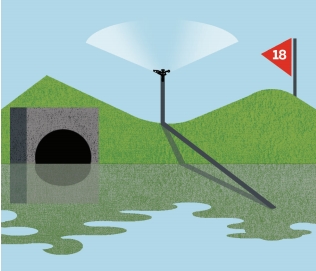 Eight diverse water recycling schemes from across Australia were selected for detailed investigation via a participatory process with project partners. The project’s case studies seek to be indicative rather than representative and therefore cover a broad spectrum of situations across wide-ranging dimensions, viz.:
Eight diverse water recycling schemes from across Australia were selected for detailed investigation via a participatory process with project partners. The project’s case studies seek to be indicative rather than representative and therefore cover a broad spectrum of situations across wide-ranging dimensions, viz.:
- Scale: from precinct/cluster up – 0.17 to 20 ML/d
- Jurisdiction: QLD, regional and metro NSW, VIC, SA
- Source: sewage, trade waste or stormwater
- End-use: residential, commercial, industrial and agricultural
- Delivery models: public, private, and partnerships
- Location: urban, rural, regional
- Operational duration: months to decades
The depth of the case studies is expanded by six papers exploring cross-cutting themes that emerged from the detailed case studies, complemented by insights from outside the water sector.
For each study site and theme, inputs included semi-structured interviews with representatives of all key parties (e.g., regulators, owners/investors, operators, customers, etc) and document review (e.g., internal organisational documentation, policies and guidelines, conference and academic literature).
These data were analysed and documented in a case study narrative. In accordance with UTS ethics processes, research participants were informed of their rights, agreed to participate, provided feedback on drafts and gave permission to release outputs.
The specific details of the case studies and themes were then integrated into two synthesis documents (the Policy Paper and Investment Guide) targeting two distinct groups: policy makers and investors/planners.
